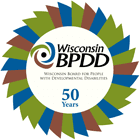Did you know that you can order free COVID-19 test kits to your home? Both the federal government and the state of Wisconsin are offering this service.
Wisconsin Test Kit process:
Step one: Request an at-home collection kit
Request an at-home collection kit using the button below. A collection kit will be delivered directly to your home; PO boxes are not eligible to have kits delivered.
Step two: Collect your sample
Once you receive your collection kit, you must collect the sample in the presence of a licensed health care professional over a virtual Zoom call (Download Zoom(link is external)). Once you have downloaded Zoom and are ready to produce a saliva sample, you may join a virtual waiting room(link is external).
Step three: Send in your sample
National Test Kit Process:
- Are rapid antigen at-home tests, not PCR
- Can be taken anywhere
- Give results within 30 minutes (no lab drop-off required)
- Work whether or not you have COVID-19 symptoms
- Work whether or not you are up to date on your COVID-19 vaccines
- Are also referred to as self-tests or over-the-counter (OTC) tests
If you need help ordering test kits from the federal option, you can call 1-800-232-0233
